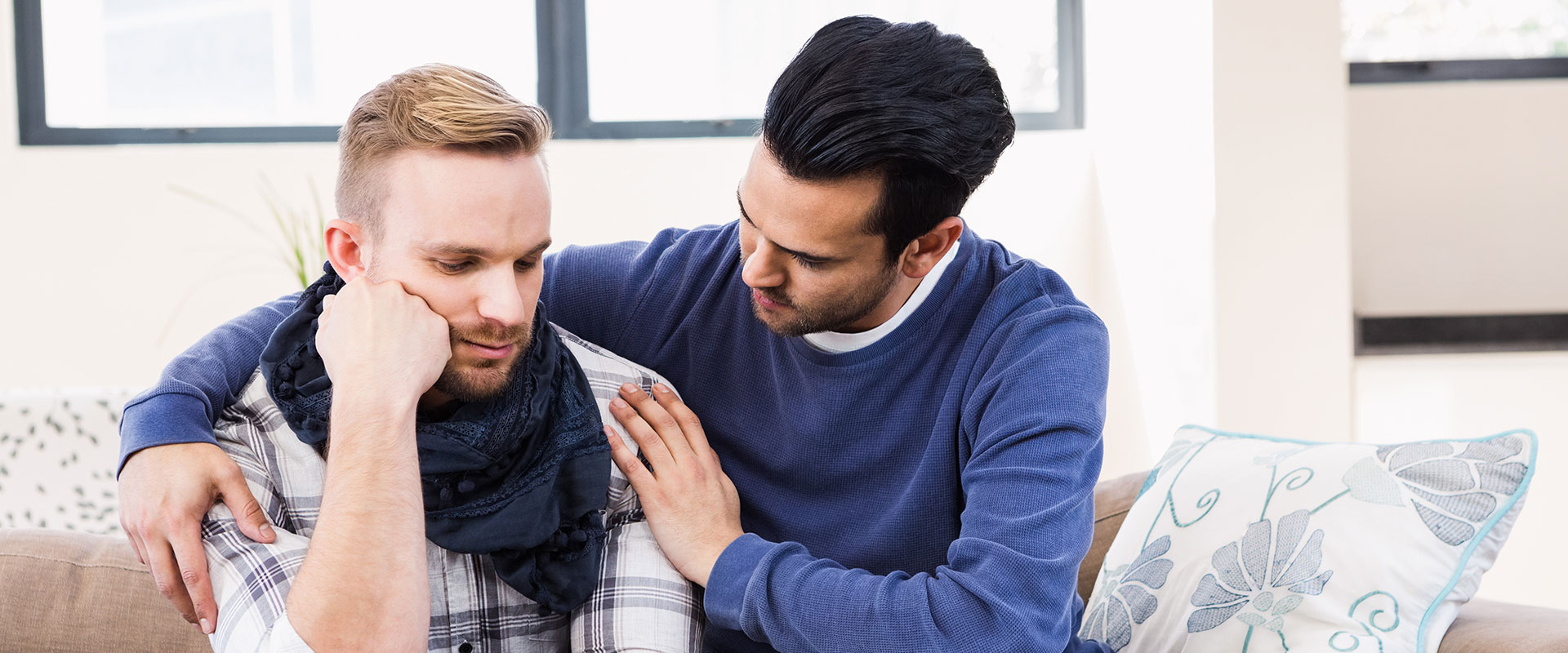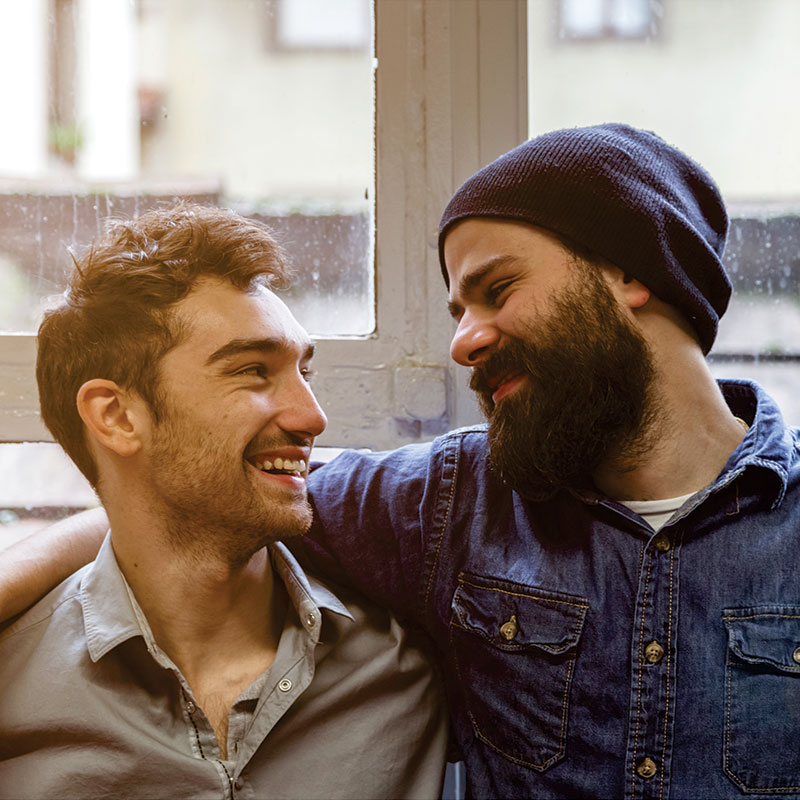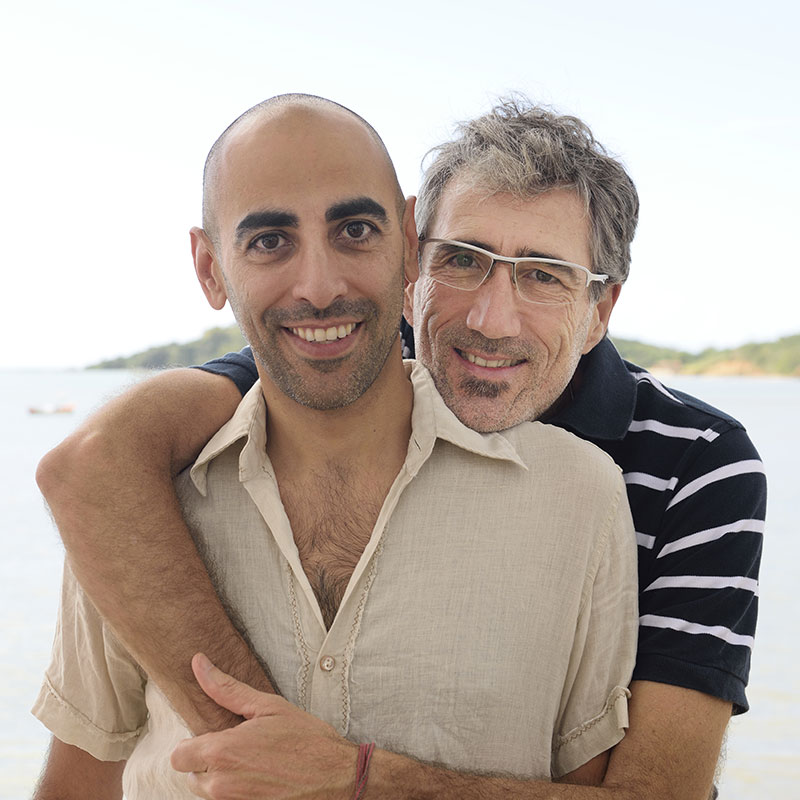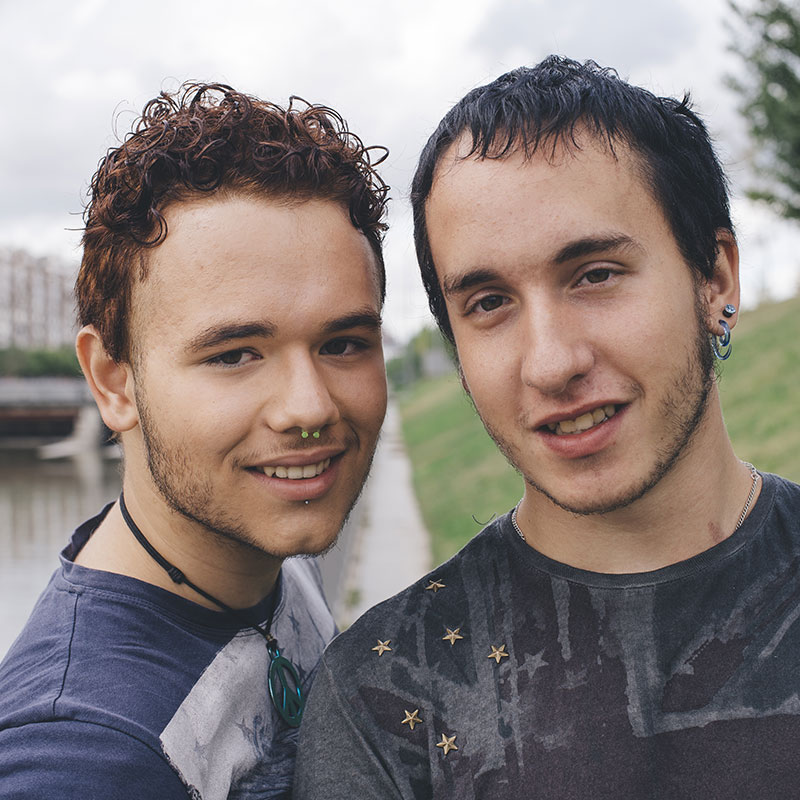
Peter and Harry
Peter’s experience of diagnosis with HIV had been difficult and this made disclosure a sensitive issue.
Peter: After my diagnosis I felt it was going to be very difficult to approach sex in a relationship and be open.
Initially I put it on my online profile. I never had a bad reaction to it but then, I realised, I hadn’t got there in my own head. It made me realise what a deeply personal thing it was that had happened to me, and that there were still elements of it that I hadn’t dealt with. I thought, “How can I convey this to other people when I haven’t dealt with it?” So I stopped telling people and stopped broadcasting it. It is personal and I only tell people I trust.
Peter made the decision to disclose his HIV status to Harry because he thought the relationship was becoming more serious.
Harry: We were at my house and Peter said, “I’ve got something to tell you.” And this is going to sound funny but I was actually relieved because I thought that he was going to tell me that things were getting really serious really quickly and I wasn’t ready for that yet. So I wasn’t overly concerned about HIV itself, it was more what it meant for us. I knew enough not to be overly concerned.








